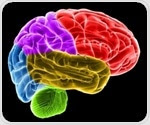| |  A Vancouver-based research team led by Canada's most cited neuroscientist, Dr. Patrick McGeer, has successfully carried out studies suggesting that, if started early enough, a daily regimen of the non-prescription NSAID (nonsteroidal anti-inflammatory drug) ibuprofen can prevent the onset of Alzheimer's disease. A Vancouver-based research team led by Canada's most cited neuroscientist, Dr. Patrick McGeer, has successfully carried out studies suggesting that, if started early enough, a daily regimen of the non-prescription NSAID (nonsteroidal anti-inflammatory drug) ibuprofen can prevent the onset of Alzheimer's disease. | |
|
| |  Years before people start showing characteristic symptoms of Alzheimer's disease, sticky plaques begin forming in their brains, damaging nearby cells. For decades, doctors have sought ways to clear out these plaques as a way to prevent or treat the disease. Years before people start showing characteristic symptoms of Alzheimer's disease, sticky plaques begin forming in their brains, damaging nearby cells. For decades, doctors have sought ways to clear out these plaques as a way to prevent or treat the disease. | |
|
| |  Two GlycoNet Investigators are using technology to better understand how sugars in the human body are connected to Alzheimer's disease. Two GlycoNet Investigators are using technology to better understand how sugars in the human body are connected to Alzheimer's disease. | |
|
| |  You're about to turn 60, and you're fretting. Your mother has had Alzheimer's disease since the age of 65. At what age will the disease strike you? A Canadian study published in JAMA Neurology shows that the closer a person gets to the age at which their parent exhibited the first signs of Alzheimer's, the more likely they are to have amyloid plaques, the cause of the cognitive decline associated with the disease, in their brain. You're about to turn 60, and you're fretting. Your mother has had Alzheimer's disease since the age of 65. At what age will the disease strike you? A Canadian study published in JAMA Neurology shows that the closer a person gets to the age at which their parent exhibited the first signs of Alzheimer's, the more likely they are to have amyloid plaques, the cause of the cognitive decline associated with the disease, in their brain. | |
|
| |  Concussions and other traumatic brain injuries may increase the risk of developing Alzheimer's disease earlier in life, according to a study from UT Southwestern's Peter O'Donnell Jr. Brain Institute. Concussions and other traumatic brain injuries may increase the risk of developing Alzheimer's disease earlier in life, according to a study from UT Southwestern's Peter O'Donnell Jr. Brain Institute. | |
|
| |  Although certain genetic variants increase the risk of Alzheimer's disease (AD), age is the strongest known risk factor. But the way in which molecular processes of aging predispose people to AD, or become impaired in AD remains a mystery. Although certain genetic variants increase the risk of Alzheimer's disease (AD), age is the strongest known risk factor. But the way in which molecular processes of aging predispose people to AD, or become impaired in AD remains a mystery. | |
|
| |  A diet high in protein-rich foods such as meat and legumes reduces the risk of developing Alzheimer’s disease, new research from Edith Cowan University has found. A diet high in protein-rich foods such as meat and legumes reduces the risk of developing Alzheimer’s disease, new research from Edith Cowan University has found. | |
|
| |  A team of researchers from the Cleveland Clinic Lerner Research Institute have found that gradually depleting an enzyme called BACE1 completely reverses the formation of amyloid plaques in the brains of mice with Alzheimer's disease, thereby improving the animals' cognitive function. A team of researchers from the Cleveland Clinic Lerner Research Institute have found that gradually depleting an enzyme called BACE1 completely reverses the formation of amyloid plaques in the brains of mice with Alzheimer's disease, thereby improving the animals' cognitive function. | |
|
| |  A therapeutic target to preserve vision in glaucoma patients could have treatment ramifications for age-related neurodegenerative disorders like Alzheimer's and Parkinson's, according to findings released today in the Proceedings of the National Academy of Sciences. A therapeutic target to preserve vision in glaucoma patients could have treatment ramifications for age-related neurodegenerative disorders like Alzheimer's and Parkinson's, according to findings released today in the Proceedings of the National Academy of Sciences. | |
|
| |  Inadequate oxygen levels during sleep can damage the brain and increase the risk of developing Alzheimer's disease, University of Queensland researchers have found. Inadequate oxygen levels during sleep can damage the brain and increase the risk of developing Alzheimer's disease, University of Queensland researchers have found. | |
|
| |  An association between inflammation biomarkers in both blood plasma and cerebrospinal fluid and markers of Alzheimer's disease associated pathology, has been found by researchers at the University of Colorado Anschutz Medical Campus working with the University of Wisconsin Alzheimer's Disease Research Center and the University of California San Francisco Memory and Aging Center. An association between inflammation biomarkers in both blood plasma and cerebrospinal fluid and markers of Alzheimer's disease associated pathology, has been found by researchers at the University of Colorado Anschutz Medical Campus working with the University of Wisconsin Alzheimer's Disease Research Center and the University of California San Francisco Memory and Aging Center. | |
|
| |  Stigma associated with Alzheimer's disease may be an obstacle for individuals to seek information about their risk of developing Alzheimer's disease and to participate in clinical studies that discover potential therapies. Stigma associated with Alzheimer's disease may be an obstacle for individuals to seek information about their risk of developing Alzheimer's disease and to participate in clinical studies that discover potential therapies. | |
|
| |  Long-term proton pump inhibitor (PPI) use does not increase the risk of hip fracture among persons with Alzheimer's disease, according to a new study from the University of Eastern Finland. Long-term proton pump inhibitor (PPI) use does not increase the risk of hip fracture among persons with Alzheimer's disease, according to a new study from the University of Eastern Finland. | |
|
| |  Initiating an opioid analgesic reduced the use of antipsychotics and benzodiazepines in persons with Alzheimer's disease, a recent study from the University of Eastern Finland shows. Initiating an opioid analgesic reduced the use of antipsychotics and benzodiazepines in persons with Alzheimer's disease, a recent study from the University of Eastern Finland shows. | |
|
| |  A new report shows that Alzheimer’s disease cases and the costs of treatment and hospitalization due to this disease and deaths due to this condition are on the rise. The report finds that at present 5.7 million Americans suffer from Alzheimer’s disease and of these 5.5 million are over the age of 65 years. Of these 3.4 million are women. A new report shows that Alzheimer’s disease cases and the costs of treatment and hospitalization due to this disease and deaths due to this condition are on the rise. The report finds that at present 5.7 million Americans suffer from Alzheimer’s disease and of these 5.5 million are over the age of 65 years. Of these 3.4 million are women. | |
|
| |  New analysis from Alzheimer’s Research UK shows the UK health system will need to think differently to cope with the unique challenges presented by future dementia treatments. New analysis from Alzheimer’s Research UK shows the UK health system will need to think differently to cope with the unique challenges presented by future dementia treatments. | |
|
| |  In a new study, researchers have shown that excessive sleepiness during the day time among elderly who had normal mental acuity and cognitive powers is associated with the buildup of amyloid plaques in the brain that is typical of Alzheimer’s disease. In a new study, researchers have shown that excessive sleepiness during the day time among elderly who had normal mental acuity and cognitive powers is associated with the buildup of amyloid plaques in the brain that is typical of Alzheimer’s disease. | |
|
| |  A recent study has found that African Americans with a common genetic variation are at an increased risk for developing Alzheimer’s disease. A recent study has found that African Americans with a common genetic variation are at an increased risk for developing Alzheimer’s disease. | |
|
| |  Because people are now living longer and often healthier lives, the rate of some illnesses that are more likely to develop with age has risen. These illnesses include dementia. In fact, the number of us living with dementia was already 47 million worldwide in 2015. It could reach 131 million by 2050. Because people are now living longer and often healthier lives, the rate of some illnesses that are more likely to develop with age has risen. These illnesses include dementia. In fact, the number of us living with dementia was already 47 million worldwide in 2015. It could reach 131 million by 2050. | |
|
| |  Alzheimer´s disease is the key cause of dementia in elderly patients. Those affected develop deficiencies in their abilities to learn, think logically, communicate, and to master the challenges of everyday life. Alzheimer´s disease is the key cause of dementia in elderly patients. Those affected develop deficiencies in their abilities to learn, think logically, communicate, and to master the challenges of everyday life. | |
|
| |  Sanford Burnham Prebys Medical Research Institute researchers have published two new studies in Neuron that describe how TREM2, a receptor found on immune cells in the brain, interacts with toxic amyloid beta proteins to restore neurological function. Sanford Burnham Prebys Medical Research Institute researchers have published two new studies in Neuron that describe how TREM2, a receptor found on immune cells in the brain, interacts with toxic amyloid beta proteins to restore neurological function. | |
|
| |  After more than a decade of research, this much we know: it's good for your brain to know another language. After more than a decade of research, this much we know: it's good for your brain to know another language. | |
|
| |  A new research study reveals RAC1 protein could be a new therapeutic target to study the molecular mechanisms related to the neurodegenerative processes in Parkinson's disease. A new research study reveals RAC1 protein could be a new therapeutic target to study the molecular mechanisms related to the neurodegenerative processes in Parkinson's disease. | |
|
| |  A research conducted by the UAB demonstrates that mice suffering from this disease also have substantial malfunctions in small blood vessels, important in nourishing different organs and tissues and in regulating blood pressure, and which mainly affects females. A research conducted by the UAB demonstrates that mice suffering from this disease also have substantial malfunctions in small blood vessels, important in nourishing different organs and tissues and in regulating blood pressure, and which mainly affects females. | |
|
| |  The ability to generate spoken verbs in infinitive in a given time begins to worsen in the early stages of Alzheimer's disease (AD). The ability to generate spoken verbs in infinitive in a given time begins to worsen in the early stages of Alzheimer's disease (AD). | |
|
| |  AbbVie, a global biopharmaceutical company, and Voyager Therapeutics, Inc., a clinical-stage gene therapy company, today announced that they have entered into an exclusive strategic collaboration and option agreement to develop and commercialize vectorized antibodies directed against tau for the treatment of Alzheimer's disease and other neurodegenerative diseases. AbbVie, a global biopharmaceutical company, and Voyager Therapeutics, Inc., a clinical-stage gene therapy company, today announced that they have entered into an exclusive strategic collaboration and option agreement to develop and commercialize vectorized antibodies directed against tau for the treatment of Alzheimer's disease and other neurodegenerative diseases. | |
|
| |  Scientists at Wake Forest Baptist Medical Center and the University of Southern California (USC) have demonstrated the successful implementation of a prosthetic system that uses a person's own memory patterns to facilitate the brain's ability to encode and recall memory. Scientists at Wake Forest Baptist Medical Center and the University of Southern California (USC) have demonstrated the successful implementation of a prosthetic system that uses a person's own memory patterns to facilitate the brain's ability to encode and recall memory. | |
|
| |  A team of University of Missouri neuroscientists are inching closer to developing the tools needed to decipher the brain. A team of University of Missouri neuroscientists are inching closer to developing the tools needed to decipher the brain. | |
|
| |  Increasing social interaction among people living with dementia in care homes could improve the quality of their life and save money, suggests new study. Increasing social interaction among people living with dementia in care homes could improve the quality of their life and save money, suggests new study. | |
|
| |  A joint team of scientists from Russia and the United States designed a method for marking dividing stem cells with three different labels. A joint team of scientists from Russia and the United States designed a method for marking dividing stem cells with three different labels. | |




































































No hay comentarios:
Publicar un comentario